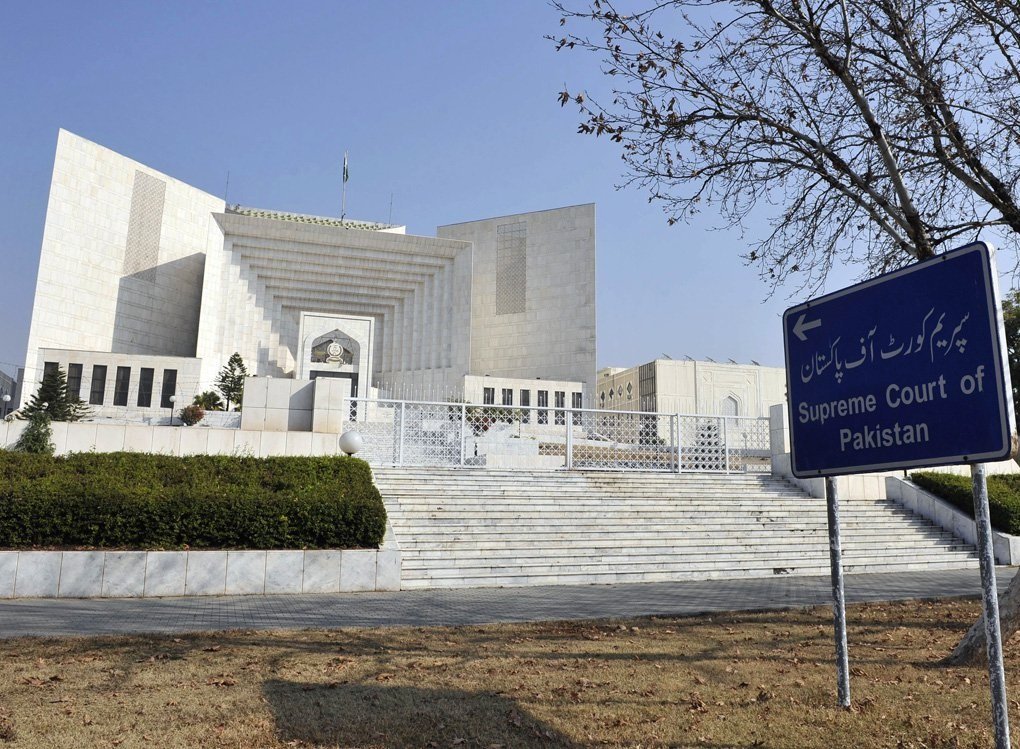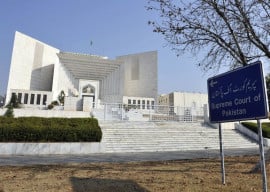
The Supreme Court on Tuesday held that the Islamic law of inheritance on the distribution of property could not be altered by the judiciary or jirgas as the matter was settled about 1,400 years ago.
A two-judge bench, comprising Justice Qazi Faez Isa and Justice Yahya Afridi, was hearing a plea filed against a decision of the Peshawar High Court pertaining to the distribution of the property among the heirs of a deceased man named Habibullah, a resident of Swat.
The heirs approached the court for equal distribution of their property after a local jirga had decided to distribute it among them.
During the hearing, Justice Isa noted that the law given by Islam for inheritance was final and no one, including courts, could change that.
He added that the decision of the jirga in the case was not “greater than the divine religion”.
The judge observed that a seven-year-old child was made witness to the jirga's decision and his thumbprint was stamped on the property distribution documents.
“A seven-year-old child cannot be hanged in a murder case,” Justice Isa chided, adding that such documents made a mockery of the law.
Read Woman wins inheritance 22 years after her death
During the hearing, the petitioner requested the court to consider the “ground realities” of the region while hearing the case.
Justice Isa took exception to this remark and said the region he was talking about “treated women as lesser human beings”.
The judge noted that arguments such as “ground realities” had been used to impose martial laws in the country, and for coercing judges into signing documents.
“But, still we are asked to consider ‘ground realities’.”
According to Justice Isa, Saudi Arabian courts settled property cases in just a month, whereas in Pakistan, such cases took decades. “Islam has decided the inheritance laws 1,450 years ago,” the SC judge added.
Subsequently, the court ordered the distribution of the property of the late Habibullah among all the legal heirs in accordance with the shariah law.
Last month, the top court had observed that “women’s inheritance rights are protected under law”.
However, it added that it had to be examined whether a woman withdrew from inheritance rights herself.
If the woman gave up her inheritance rights, then her heirs could not claim them, the court noted.
A three-judge bench of the apex court -- led by Justice Umar Ata Bandial -- was hearing leave to appeal against the PHCs judgment wherein it had dismissed a plea filed by the children of two deceased women, claiming their inheritance.
The children, who hailed from Peshawar, claimed a share in their maternal grandfather’s property.
The grandfather, Isa Khan, had transferred his property to his son without giving a share to his daughters, who never claimed inheritance during their lifetime.
After the death of their mothers, the children filed a petition in 2004 a civil court, claiming their share in the maternal grandfather’s property. In 2017, the PHC nullified the court’s 2012 judgement in favour of the grandchildren.
The Supreme Court upheld the high court’s decision and rejected leave to appeal petitions.



1719660634-1/BeFunky-collage-nicole-(1)1719660634-1-165x106.webp)

1732276540-0/kim-(10)1732276540-0-165x106.webp)


1724249382-0/Untitled-(640-x-480-px)1724249382-0-270x192.webp)


1732270499-0/Express-Tribune-(7)1732270499-0-270x192.webp)








COMMENTS
Comments are moderated and generally will be posted if they are on-topic and not abusive.
For more information, please see our Comments FAQ